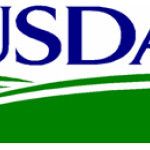- Industri: Government
- Number of terms: 41534
- Number of blossaries: 0
- Company Profile:
A national depository of scientific and popular agricultural information located at the Agricultural Research Service’s research center in Beltsville, Maryland. NAL’s administration was merged with ARS in 1994.
Industry:Agriculture
Established in 1981 to annually review the cost of production methodology used by USDA in price-support programs.
Industry:Agriculture
An institution created by Congress in 1863 to provide science-based advice to the government. The sister organizations associated with the Academy are the National Academy of Engineers, Institute of Medicine, and the National Research Council. The Academies and the Institute are honorary societies that elect new members to their ranks each year. The bulk of the institutions’ science-policy and technical work is conducted by the National Research Council (NRC), created expressly for that purpose. The NRC’s Board on Agriculture addresses issues confronting agriculture, food, and related environmental topics.
Industry:Agriculture
Toxic substances produced by fungi or molds on agricultural crops that may cause sickness in animals or humans that eat feed or food made from contaminated crops. There are between 300 and 400 known mycotoxins, but of most concern, based on toxicity and occurrence, are aflatoxin, vomitoxin, zearalenone, funonisin, T-2 toxin, and T-2-like toxins (trichothecenes). GIPSA currently measures for aflatoxin in all exports shipments of corn, and measures for aflatoxin and vomitoxin on a voluntary basis in domestic shipments.
Industry:Agriculture
A program to assist groups of low-income families in building their own homes. Each family is expected to contribute at least 700 hours of labor in building homes for each other. Participating families generally have low income and are unable to pay for homes built by the contract method. The homes are generally financed by Section 502 loans.
Industry:Agriculture
An agent that causes a permanent genetic change in a cell other than that which occurs during normal growth. Testing to determine mutagenicity is one component of assessing the potential chronic toxicity of pesticides and other chemicals.
Industry:Agriculture
According to the Multiple Use and Sustained Yield Act of 1960 (P.L. 86-517, June 12, 1960), as amended, multiple use of the national forests means the "harmonious and coordinated management of the various resources, each with the other, without impairment of the productivity of the land, with consideration being given to the relative values of the various resources, and not necessarily the combination of uses that will give the greatest dollar return or the greatest unit output." Multiple use implies a sustained yield of outdoor recreation, range, timber, watershed, and wildlife and fish values.
Industry:Agriculture
The practice of valuing farm milk according to the value of its protein, fat, and mineral content. This practice has been adopted by many regions for federal milk marketing orders. Historically, milk was priced solely on the basis of fat content.
Industry:Agriculture
A method of regional pricing in milk marketing orders that would allow more than one basing point, or "surplus area," to be used. Surplus areas are administratively defined as areas with low Class I utilization, meaning that a relatively small percentage of the milk produced in an area is used in that area as Class I (fluid) milk. In a multiple basing point system, the order used as the basing point has the smallest Class I differential (the difference between the Class I price and the Class III price). The Class I differential for other orders is then based on transportation costs to the nearest basing point plus the minimum differential.
Industry:Agriculture
Negotiations between General Agreement on Tariffs and Trade (GATT) member nations that are conducted under the auspices of the GATT and that are aimed at reducing tariff and nontariff trade barriers. The World Trade Organization has now replaced the GATT as the administrative body.
Industry:Agriculture
